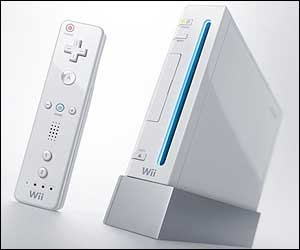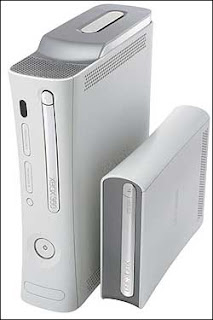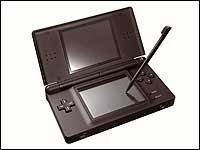These are interesting times for Mac gamers. Thanks to the healthy state of the Macintosh marketplace, the economics of porting Windows games to the Mac are more favourable now than they have ever been. A number of Mac-focused developers are putting out high-quality games too, and most notably for this article, the open source world now provides a number of excellent games for Mac users. But before we look at the wide world of free open source games, here's a brief overview of commercial gaming on the Mac.
State of the Gaming Mac -- Things weren't quite so rosy ten years ago, when one of the largest porting houses at the time, MacPlay, essentially shut up shop as its parent company, Interplay, abandoned the Mac platform.
But that was then, and this is now. Two companies that endured the 1990s were Aspyr and MacSoft, and they now boast impressive portfolios of blockbuster games. Feral Interactive appeared on the scene in 1996, and quickly grew into a major porting house. Even MacPlay eventually returned to life in 2000. So while not every best-selling PC game makes it to the Macintosh, a lot of them do, even if you don't see them on sale at your local computer superstore.
A further upswing brought on by the switch from PowerPC to Intel processors, something that makes porting PC games to the Mac significantly easier to do. TransGaming has developed a product called Cider that enables PC game code to run on an Intel-based Mac without modification.
Besides the companies that port PC games to the Macintosh, the Mac enjoys good support from companies that create original games just for the Mac. Ambrosia Software and Freeverse are two of the best known and most respected. Ambrosia has been around since 1993, producing both games and utility software, but unlike the porting houses, most of their sales are done through shareware. Demo versions of their games can be downloaded from the Internet or found on the cover discs supplied with Mac magazines. This way you get to try out the game, and if you like it, you can pay the shareware fee to get an activation code that converts the demo into the full version of the game. Freeverse is another purveyor of fine shareware games, as well as some legendary freeware "toys" that serve absolutely no purpose at all but are well worth downloading nonetheless (I'm looking at you, Jared the Butcher of Song).
GameHouse is a new kid on the block. Initially a developer of board, puzzle and arcade games for the PC, GameHouse was acquired by RealNetworks in 2004 and has quickly expanded its product range to include a huge number of Macintosh games as well.
But even putting aside the relative abundance of commercial and shareware Mac games, the Mac gamer has two other sources of computer games. Firstly, there's the option of running Windows versions via Boot Camp or virtualization technology such as Parallels Desktop or VMware Fusion. On the plus side, this approach lets you play new games straight away without having to wait the months or even years it takes for PC game to be ported to the Mac (if it happens at all). The downside though is you'll need to install Windows onto your Mac (with all the usability and security issues that involves). So besides the game itself, you'll need to factor in the cost of a copy of Microsoft Windows as well. Plus, new copies of Boot Camp are available only for people running Mac OS X 10.5 Leopard (though existing copies continue to work in Tiger). If you go the virtualization route, then you'll need to pony up for a copy of Parallels Desktop or VMware Fusion. So while playing Windows versions of Mac games can be worthwhile, it's an expensive approach and not without a significant hassle factor.
The second source of computer games is that collection of developers and testers collectively known as the Open Source Movement. While the value of open source software for productivity programs and even operating systems is well known, most Mac users don't think of open source when looking for games. That's an oversight, since open source community has developed a wide variety of games for the Mac.
Updating the Classics -- Open source works particularly well with older games have been placed in the public domain by their original developers. Among the companies that have done this are id Software and Bungie. In 1999, id Software released the Quake engine source code under the terms of the GNU General Public License. The Quake II engine source code was released two years later. It's important to note that id Software didn't give the full games away, just the engines. All the data files, including the maps and monsters, remain the property of id Software.
In practice this means that while you can download a number of Mac OS X versions of Quake and Quake II from sites like MacGLQuake and Fruitz of Dojo, you will still need to obtain the original game CDs to actually play the games.
Gamers with PowerPC-based Macs can use either the Macintosh or DOS/Windows Quake and Quake 2 CD-ROMs. If you have a Mac game disk, the supplied installer will put all the files where you need them. Because the Installer is a Classic application, Mac users with Intel-based machines will have to use the DOS/Windows disks instead. This isn't difficult: all you need to do is create a Quake or Quake 2 application folder, copy across the relevant folders from the CD, and then install the open source Quake or Quake 2 applications as instructed. For Quake, copy the folder that's called ID1 and lurks inside the Data folder on the CD; for Quake 2 the folders you need are in a similar location but are called baseq2, ctf, rogue, and xatrix.
Like id Software, Bungie initially released only the Marathon engine source code in 2000. An open source version of the game called Aleph One followed shortly afterwards and remains in active development. In 2005 Bungie put the data files for all three versions of Marathon online for free distribution, so that unlike the situation with Quake, gamers can play the Marathon trilogy without having to buy any of the original CDs.
Sincerest Form of Flattery -- The open source community has also actively created clones of many popular games. To no small degree this was driven by the fact that Linux users didn't have access to the best-selling commercial games of the time. The results, though variable in terms of fidelity and quality, did at least plug some gaps.
Lincity started out as a Linux equivalent of SimCity, a strategy game that has the player developing a city by constructing buildings and adjusting finances. The original version of Lincity had a simple two-dimensional, top-down interface but in its latest incarnation, LinCity-NG, the game is pseudo-three-dimensional. It also has improved graphics and sounds, and the overall look and feel is similar to SimCity 2000. Betraying its Linux origins somewhat, the Mac version runs in X11.
Freeciv is an open source alternative to Civilization, a turn-based strategy game of exploration, resource management, and world domination. As with Lincity, there's a bit of a retro feel to Freeciv because it looks and works a lot like Civilization II. That said, Freeciv is much more modifiable, so that the rules can be adjusted to create a much different game. Again, Freeciv has its heart in the Linux world, but thanks to Apple X11 it runs nicely on the Macintosh.
Simutrans Transport Simulator is another strategy game. It's not so much based on one particular game as an entire gaming genre, that of the "transportation tycoon" where the player builds networks of roads, rails and other modes of transport to make money and achieve certain goals. Yet again, the graphics are relatively old fashioned compared with modern games, but attractive nonetheless. A special version is required for Intel-based Macs.
Sauerbraten is a shoot 'em up rather like Quake III in terms of performance and gameplay. It's definitely a step up from the open source versions of Quake and Quake II, having much more realistic and dramatic visuals. But Sauerbraten definitely shines brightest when used for death-match play rather than single player use. In single player mode, the monsters don't form a particular coherent or impressive assembly, and the artificial intelligence behind them is fairly basic, so that if they frag you it's most likely due to overwhelming numbers rather than cunning strategy. The single player maps also tend to be rather simple, lacking the atmosphere and story lines that made the original Quake games so compelling. Still, it's a good-looking game offering plenty of explosive fun.
Finally, there's The Battle for Wesnoth, a Myth-like game of strategy where the player gradually builds up an army through a succession of battles until some particular goal is achieved. The game is set in a fantasy-type realm with elves, archers, knights, orcs and so on, meaning that there's a nice range of melee and magical attacks available for use. The graphics are relatively cartoonish but beautifully drawn, and combined with a nicely balanced tutorial, it's an extremely pleasant game to explore.
Come Fly with Me -- Although Microsoft Flight Simulator 4.0 was the last version produced for the Macintosh, the Mac has been reasonably well served with flight sims over the years, most recently by the excellent cross-platform simulator X-Plane. There's also an interesting open source flight simulator as well, called Flight Gear. Compared with X-Plane, Flight Gear has more moderate demands in terms of hardware and while it might lack some of the bells and whistles, it's still pretty realistic and a lot of fun to play with. At first glance, you'll be impressed by the quality of the aircraft models but likely a little underwhelmed by the scenery. In Microsoft terms, the look and feel is somewhere between Flight Simulator 98 and Flight Simulator 2002. To download, visit the page of pre-built Mac binaries.
An entirely different sort of simulator is Beyond the Red Line, a game that puts you in the world of the re-imagined Battlestar Galactica. Beyond the Red Line is a combat simulator, with the accent more on having fun blowing things up than real flight simulation. Like the Quake and Marathon games mentioned earlier, Beyond the Red Line has been built upon a commercial game engine that was placed in the public domain, in this instance, the FreeSpace engine developed by Volition. It's an impressive game, not just in terms of the spaceships and action, but also in the general look and feel.
Bottom line: Do you get what you pay for? It's likely that the Open Source Movement will become an increasingly important source of gaming software for many Mac users. The diversity of games already out there is considerable, and in many cases the games are polished, sophisticated, very playable and lots of fun.
Let's review the pros and cons. On the plus side of the equation there's obviously price. It's hard to fault a game like Flight Gear that delivers most of what you'd get with a commercial Macintosh flight simulator but at zero cost. Then there's the steady improvement in open source software. The projects behind each game steadily work through the bugs, releases new versions of the game at frequent intervals. Compare this with commercial games that are can be left in a bug-infested state if the developer decides to focus on the successor game instead.
But on the downside, many of these games feel "old" relative to the latest commercial games in the same genre. Some games also lack polish. Games like Quake sold well not just because the game mechanics were good, but because the story lines and atmosphere were solid and engaging. This isn't always the case with open source games, though in some cases it is (most notably the rich in-universe feel of Beyond the Red Line).
Open source games aren't really a threat to the commercial Mac game developers. No one considering Sim City 4 is going to switch to Lincity simply because it's free; the difference in quality is just too great. But open source games do improve the variety of games available, and that can't be a bad thing.
[Neale Monks is a writer, journalist, and educator who has been using Macs since 1990. He is a regular feature writer for the two major Macintosh magazines in the UK, Macworld UK and MacFormat, as well as a number of Mac-oriented Web sites including MyMac, AppleLust, and Informit. Among his book credits are "Astronomy with a Home Computer" and an ebook all about used and vintage Macs, "Buying Used Macs." Neale lives in a quaint little market town in Hertfordshire, England.]
Source:
TidBits










